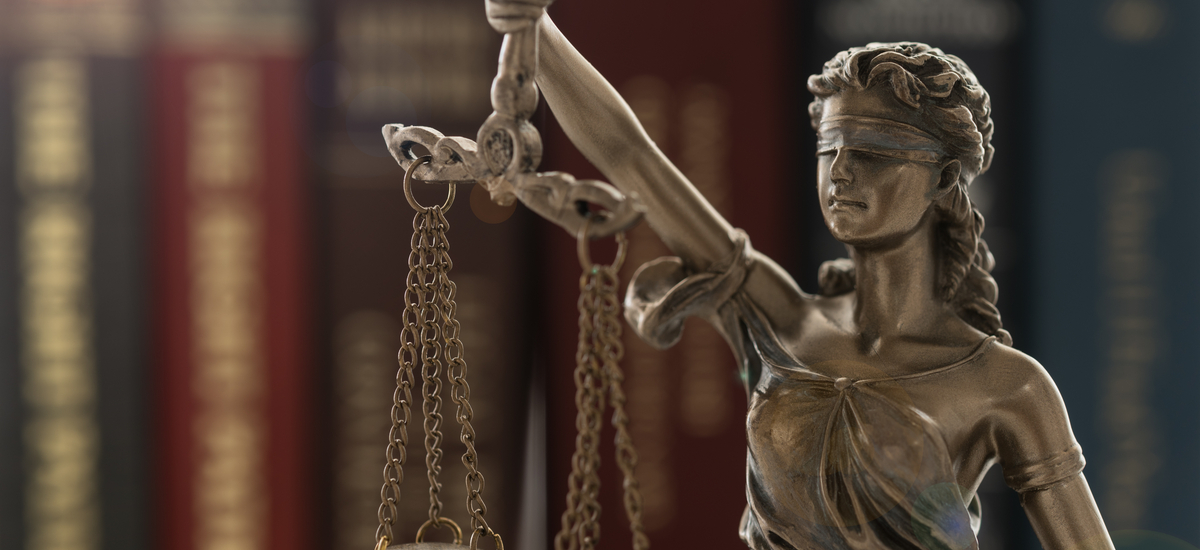Read further to know about PIL under Article 32, which allows you to file PIL in the Supreme Court.
Overview
A PIL is a public interest litigation and it is an important tool in the hands of litigants to seek justice. The basic requirement for filing a PIL is that the person who files the case must be aggrieved by some act or omission of any authority, whether it be government department or otherwise. The petitioner has to prove his/her grievance before a court of law. A PIL can be filed against any authority including state government, central government, local bodies such as municipal corporation, panchayat etc., but not against individuals.
Public Interest Litigation (PIL)
Public Interest Litigation (PIL) refers to the initiation of a case or petition in court aimed at protecting, upholding, or enforcing public interest. Public interest pertains to the rights or interests of society, a specific community class, or a group of individuals. PILs are submitted to address issues affecting the legal rights of communities or the broader public.
These litigations are geared towards safeguarding collective interests rather than individual concerns and are exclusive to the Supreme Court of India or State High Courts. PILs serve as a potent mechanism to ensure legislative and executive compliance with legal responsibilities. The central goal of PILs is to deliver justice universally and advance the overall welfare of the populace.
Concept of PIL
PIL is a legal recourse that allows citizens to litigate matters of public concern. It transcends individual interests, emphasizing collective welfare. The judiciary can take cognizance based on letters, media reports, or petitions filed not only by the aggrieved party but also by concerned citizens.
Types of PIL
Two types of PILs are there:
Citizen Social Action
Citizen Social Action Public Interest Litigation (CSAPIL) is a mechanism available to individual citizens of India who are interested in filing PILs. This PIL is an alternative to the conventional legal route for bringing about social change, and has been designed as a platform for citizen participation in public interest litigation. It provides an opportunity to people from all walks of life, irrespective of their financial or other resources, to participate in the process of justice delivery through the courts by filing PILs.
Representative Social Action
The concept of Representative Social Action Public Interest Litigation was introduced in 1976. It seeks to protect the interests of the public by using legal process and judicial authority. The Representative Social Action Public Interest litigant is not an individual representing himself but it represents the public interest as a whole. It also protects the rights and interests of minorities who are often discriminated against in other forms of litigation. Thus, this type of litigation represents a significant shift from the traditional civil justice system where one party represented only himself or herself.
What Are the Features of PIL Under Article 32 in India?
PIL is filed in the High Court or Supreme Court by an individual, group of individuals or any other organisation for redressal of grievance. The PILs are heard by the Supreme Court and High Courts. Under Article 32 of the Constitution, a PIL is filed in the Supreme Court by an individual or a group of people if one or more of their fundamental rights are violated. and their desire to bring about legal redress for them. The PILs are decided by the Supreme Court after hearing arguments from both sides and then passing orders.
Maintainability of PIL Under Article 32
A PIL is maintainable incase of violation of one or more fundamental rights. Under no other situation will a PIL be maintained. The Constitution guarantees six fundamental rights in total, out of which the sixth and last one is the ,” Right of Constitutional Remedies”. If any of the 5 fundamental rights are violated, the sixth one ensures that you have the right to take legal actions.
How to File a PIL Under Article 32 in India
For filing a PIL, the person should be a citizen of India and it should be a case of public welfare. If the fundamental rights of a group of people is being affected , a PIL can be filed in the Supreme Court under Article 32. The format of PIL is simple and must contain the name of the person filing a PIL and the respondent.
Some important points to keep in mind when filing a PIL are:
- Consult a lawyer or an association and seek help to file a PIL.
- Check if you have all the important documents like verification of ID and residence, notice, photographic evidence etc.
- Information of all the victims or aggrieved people.
- List of the respondents with name and addresses.
- The detailed information about the events that occurred and how fundamental rights were violated.
- The help that you’re seeking must be mentioned.
Importance of PIL in India
PIL is an important part of Indian Judiciary and has great importance. Some important factors about PIL are:
- PIL is easy to file and is inexpensive. It offers easy remedies for those seeking legal actions but cannot afford a court case.
- If the petitioner is from a weak background and cannot afford to find evidence to support their PIL, the court helps them by appointing a commission. This commission looks into the facts about the case.
- PILs are a great way to protect the rights of weaker sections of society and minorities.
- Public Interest Litigation helps to maintain a healthy environment and allows the court to provide easy remedies.
- PIL is an amazing example of how to use Judiciary for online Interest and for the benefit of a large group of people.
- Providing justice to the poor and weak is the main objective of PIL.
Process of Filing a PIL:
Initiating a PIL involves drafting and filing a petition in a higher court. The process differs from traditional litigation as PILs can be filed by anyone, including public-spirited individuals or organizations. Courts may also initiate proceedings based on their awareness of public issues.
Subject Matter of PIL:
PIL covers a spectrum of issues affecting the public interest, such as environmental degradation, human rights violations, corruption, and matters impacting marginalized communities. It acts as a powerful tool to address systemic problems and promote social justice.
Merits & Demerits of PIL:
Merits:
- Speedy Justice: PIL expedites legal processes, ensuring swift resolutions in matters of urgent public concern.
- Empowerment of Marginalized Groups: It provides a platform for marginalised communities and individuals to seek justice collectively.
- Protection of Constitutional Rights: PIL is instrumental in upholding constitutional values and safeguarding fundamental rights.
Demerits:
- Potential Misuse: There is a risk of PILs being misused for personal vendettas or political motives.
- Judicial Overreach: Critics argue that PILs may lead to the judiciary overstepping its role by getting involved in policy matters.
- Administrative Burden: The wide-ranging nature of PILs can pose administrative challenges for the courts.
Aspects of Public Interest Litigation:
Access to Justice:
- PIL enhances access to justice by allowing concerned citizens to bring forth issues without traditional legal barriers.
Social Activism:
- It enables the judiciary to engage in social activism, actively addressing societal concerns and contributing to positive change.
Judicial Activism:
- Through PILs, the judiciary can engage in judicial activism, intervening in policy matters to advance public welfare.
A nuanced exploration of each aspect of Public Interest Litigation provides a comprehensive understanding of its role in legal and societal contexts.
Conclusion
Public Interest Litigation is a legal process where the public interest is taken into account. It involves filing a lawsuit against the government or any other person in order to prevent them from doing something that will cause harm to the public. The main goal of this type of litigation is to protect and preserve the rights of people. This type of litigation can be used by individuals, organisations, corporations and governments as well as non-profit groups and political parties. Under Article 32 of the Constitution, an individual or a group of people can file a PIL in the Supreme Court, in case of violation of fundamental rights mentioned in the Constitution. If you want to properly understand the requirements of the PIL filing process, you should consult and seek guidance from our expert team of legal professionals at Vakilsearch.
FAQs:
Is PIL filed under Article 32?
Yes, PIL can be filed under Article 32 of the Constitution of India, which empowers the Supreme Court to issue writs for the enforcement of fundamental rights.
Which article is PIL based on?
PIL is primarily based on Article 32 for the Supreme Court and Article 226 for the High Courts, allowing the judiciary to protect fundamental rights.
What is PIL under Article 226?
PIL under Article 226 extends to the jurisdiction of High Courts, empowering them to issue writs for the enforcement of fundamental rights and other legal remedies.
What is Article 32 of the Constitution of India?
Article 32 grants individuals the right to move the Supreme Court for the enforcement of fundamental rights through the issuance of appropriate writs.
Can PIL only be filed in the Supreme Court?
No, PIL can be filed in both the Supreme Court under Article 32 and High Courts under Article 226, depending on the jurisdiction.
Who can file a PIL?
PIL can be filed by any individual, organization, or group acting in the public interest, even if they are not directly affected by the issue.
What is the purpose of PIL?
The primary purpose of PIL is to provide a legal avenue for individuals and groups to address issues impacting public interest, societal welfare, and the enforcement of fundamental rights.
Can PIL be filed for any issue?
Yes, PIL can be filed for a wide range of issues affecting public interest, including issues related to human rights, environmental concerns, and matters of societal importance.
What types of writs can be issued under Article 32 in PIL?
Article 32 empowers the Supreme Court to issue various writs such as Habeas Corpus, Mandamus, Prohibition, Certiorari, and Quo Warranto to protect fundamental rights.
How has the concept of PIL evolved in India?
The concept of PIL has evolved as a powerful legal tool in India, enabling citizens to actively participate in the judicial process and ensuring justice and fairness in matters of public concern.
Also Read











